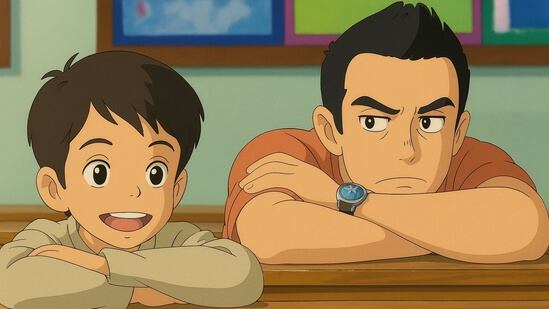The rise of AI image generators has sparked a wave of creativity, allowing users to transform ordinary photos into captivating art pieces with a simple prompt. Recently, a trend emerged involving the creation of images in the style of Studio Ghibli, the renowned Japanese animation studio behind classics like "Spirited Away" and "My Neighbor Totoro." This "Ghiblification" of images has taken social media by storm, raising both excitement and serious legal questions about copyright infringement, intellectual property rights, and the ethical implications of AI-generated art.
One of the primary legal risks stems from copyright law. Copyright protects the expression of an idea, not the idea itself. While artistic styles are generally not copyrightable, the replication of a highly recognizable and unique style like Studio Ghibli's can be considered a derivative work, particularly if the AI-generated images closely mimic specific protected elements such as characters, compositions, or unique visual elements. In the US, the Copyright Act grants copyright holders exclusive rights to reproduce, adapt, and distribute their artistic works. If AI-generated images are deemed derivative works, explicit authorization from the copyright holder (Studio Ghibli in this case) would be required.
The legal ambiguity increases when considering how AI models are trained. These models learn by analyzing vast datasets of images, many of which are copyrighted. If OpenAI or other AI developers used copyrighted Studio Ghibli works to train their models without permission, they could face legal challenges for unauthorized reproduction, distribution, and the creation of derivative works. Some argue that using copyrighted material for AI training constitutes "fair use," as the purpose is transformative and doesn't directly compete with the original works. However, this argument is still being debated in courts, and the outcome remains uncertain.
The responsibility for potential copyright infringement isn't solely on AI developers. Users who create and share AI-generated Ghibli-style images may also face legal risks, especially if they use the images for commercial purposes. Organizations using these images in ads, packaging, or merchandise could mislead consumers into believing they are official content producers, potentially harming Studio Ghibli's brand and licensing market. While individuals posting Ghibli-style images online for personal use are less likely to face legal action, platforms like Instagram may remove content that too closely mimics copyrighted styles.
Furthermore, the U.S. Copyright Office has been firm on the requirement of human authorship for copyright protection. AI-generated works lacking significant human creative input are not eligible for copyright. This raises questions about who, if anyone, owns the copyright to AI-generated images. If a user simply enters a text prompt and accepts the AI's output without substantial modification, the resulting image may not qualify for copyright protection. However, if a user selects, edits, and arranges AI-generated elements in a way that reflects creative judgment, they may be able to claim copyright over the resulting work. The level of human involvement needed for copyright protection remains a crucial point of contention.
Beyond legal considerations, ethical concerns surround AI-generated Ghibli images. Hayao Miyazaki, the co-founder of Studio Ghibli, has expressed strong disapproval of AI-generated art, calling it an "insult to life itself." Critics argue that AI undermines the livelihood of traditional artists by devaluing manual creativity. AI platforms can produce high-quality images in seconds, threatening the value of the craftsmanship that Studio Ghibli has cultivated over decades. The use of AI to replicate Ghibli's style is seen by some as a disrespect to the studio's artistic legacy and a commodification of a deeply intentional art form.
In conclusion, while the AI-generated Ghibli image trend offers a fun and accessible way to create art, users and organizations must be aware of the potential legal and ethical risks. Copyright infringement, unauthorized use of training data, and the lack of clear ownership rights are significant concerns. As AI technology continues to evolve, it's crucial to strike a balance between innovation and respect for intellectual property rights, ensuring that artists and creators are fairly compensated and that the value of human creativity is preserved.

















